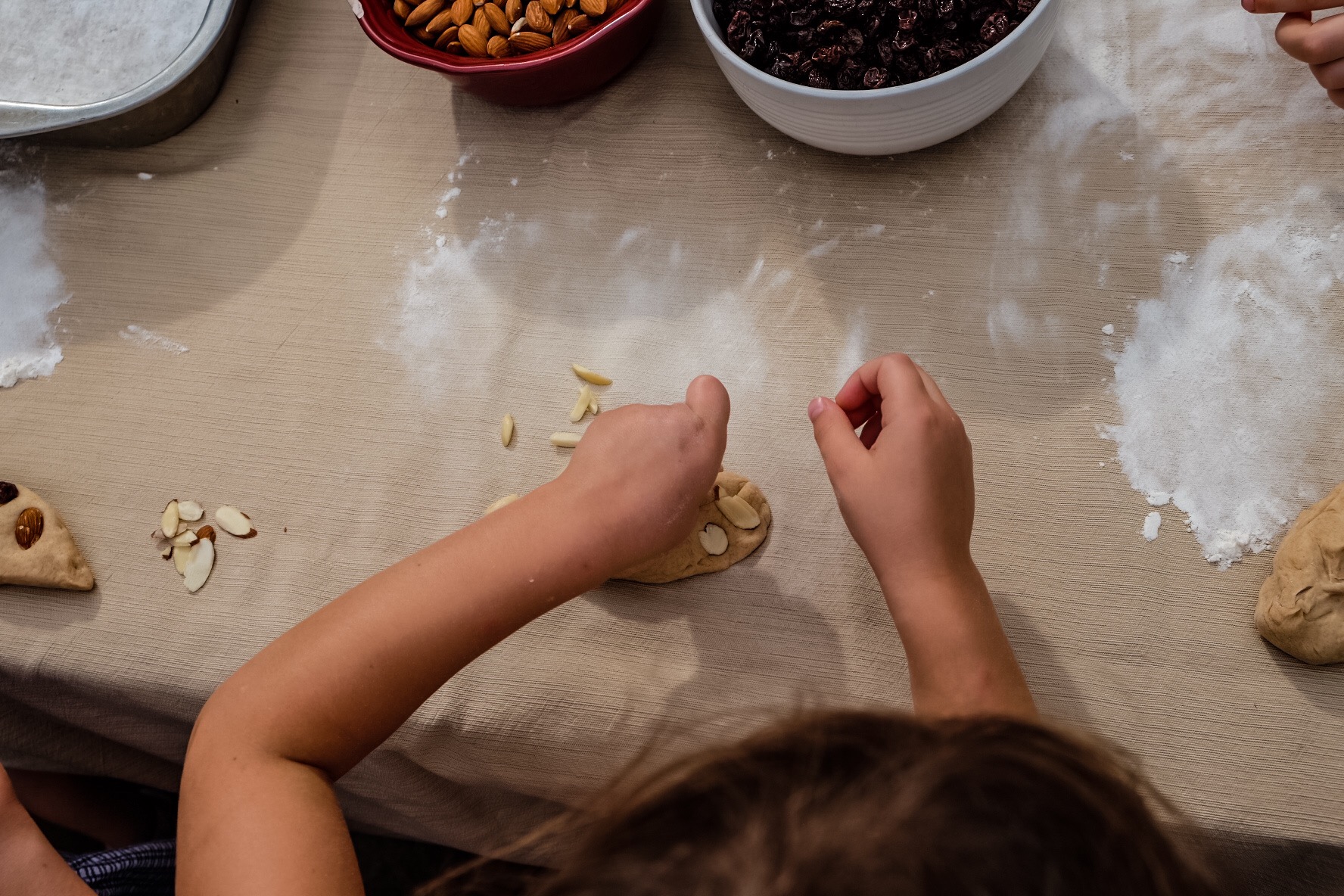
In the Lifeways curriculum, just like in home life, every event, activity, speech act, becomes relevant to growth, development and learning, whether that learning is focused toward academic work or to other kinds of competencies. And while traditional “schooling” or education for many seems to isolate verbal and mathematic academic measured tasks (as in the famous STAR testing in elementary school), this detour in the education approach and emphasis creates serious gaps in children’s knowledge, skills, moral reasoning, and development.
A first question for new families, especially of very young children, and an on-going question for older students is: how do transitions from home to school and from school to home speak to very important cognitive function we seek to develop in our children before they attend elementary school? Do they? Do transitions have something to do with, or somehow reflect on cognition? How does my child’s growing comfort with transitions throughout the day relate to or inform or become curriculum? Here is an important piece in the conversation about learning and academic success: one of the first developmental tasks for human beings is that of successfully completing (certainly it is an on-going and complicating task throughout the lifespan) the task of building trust. The alternate, where this developmental task is left incomplete or reaches its negative conclusion is the growth of mistrust. Trust versus mistrust according to Eric Erikson (1950) is fundamental to learnng, to meaning, and to growth and development. You can imagine what Trust (or its alternate, Mistrust) means for stress level, anxiety, ability to focus, willingness to take cognitive risks and solve problems or at least resiliently struggle with problems. Without trust in the world and in the self, the problem solver is overwhelmed, cannot think clearly, has trouble bulding enough successes to experience self-efficacy, that necessary ingredient for tackling the next and the next hard thing. With interest, enthusiasm, with resilience, hope and joy, the next task or series of tasks become possible and even engaging. There is a lot riding on the Trust versus Mistrust developmental task. And it is not ever complete, but the roots of Trust are built in the early years. And for us at Rose Rock, part of this Trust is learned with the transition at the beginning of the day. Are the adults to whom I am entrusted worthy of Trust? Can I find my way from one environment to another? Can I self soothe when I miss my parents? Can I self-direct toward activities that interest me? Can I negotiate my way into the games of friends? Am I willing to trust the world? All of this comes with time, like anything.
One of the ways we build trust at times of transition is in careful consideration and respect for each child’s way of handling them. In each classroom, each child has different ways to enter the day, and each one of those ways is perfectly normal.
One child jumps into play with his peers, all ready in the room with ideas lined up. When it is time to tidy and move on to a kindergarten activity, he is surprised at the brevity of time he has, hungry for more time to execute his play plans. One three year old comes in his rain jacket, his costume he calls it, and wears it through a large part of the morning. It provides him with an emotionally protective sheath as he transitions away from home and family. Another child has a brief but elaborate good-bye ritual that involves carrying in her nap time lovey, giving a secret handshake, last minute hugs and a walk back to the door to see her father out. If her routine is disrupted, it is challenging for her to smoothly meet her peers in play. She finds strength again in following the teacher about, helping prepare for the day and kindergarten actcivity. Once the class is settled, her mood has shifted, her lovey is put away and she happily applies her will to the task at hand. Each child, each person, transitions with their own nourishing rituals.

Consider what a great amount of emotional resiliency and cognitive capacity is developing through these transitions!
This transition on which your child has been working for the past years (if your family is a seasoned Rose Rock family) or for the past couple months if you are new to Rose Rock is building that essential skill of transition and Trust. It is a whole slew of skills from learning the sequence of tasks (coming in, taking off and stowing shoes, hanging up the napsack, greeting the teacher, saying goodbye to parents or grandparents), entering play, sustaining play, transitioning to craft, re-entering play, recognizing and choosing to help with clean up and for older children to assist younger children, for younger children to cooperate with their older friends and classmates, etc. There are a great many transitions in the morning and throughout the day. Learning to transition requires self-regulation, a willing heart, the confidence of parents (which children read very well), memory (for the sequence of tasks, how to negotiate the environment, etc.), will (the decision to actively participate) and follow through (sustataining will, energy, desire to contribute, trust in the environment). This ability to transition will be a necessary skill throughout life and throughout academic work. Imagine how an unwillingness or lack of skill with transition translates between this series of higher order academic steps to write a paragraph and later, a paper: recognize, accept and embrace the focus question; research, create hypothesis, apply relevant research, write, rewrite, edit, revise, cite, publish. Transitions, both overt and subtle, are required throughout this process and in every academic project throughout the grades and beyond.
So Transitions. Learning Trust. These are two of the relevant and seminal curricular tasks at Rose Rock.

